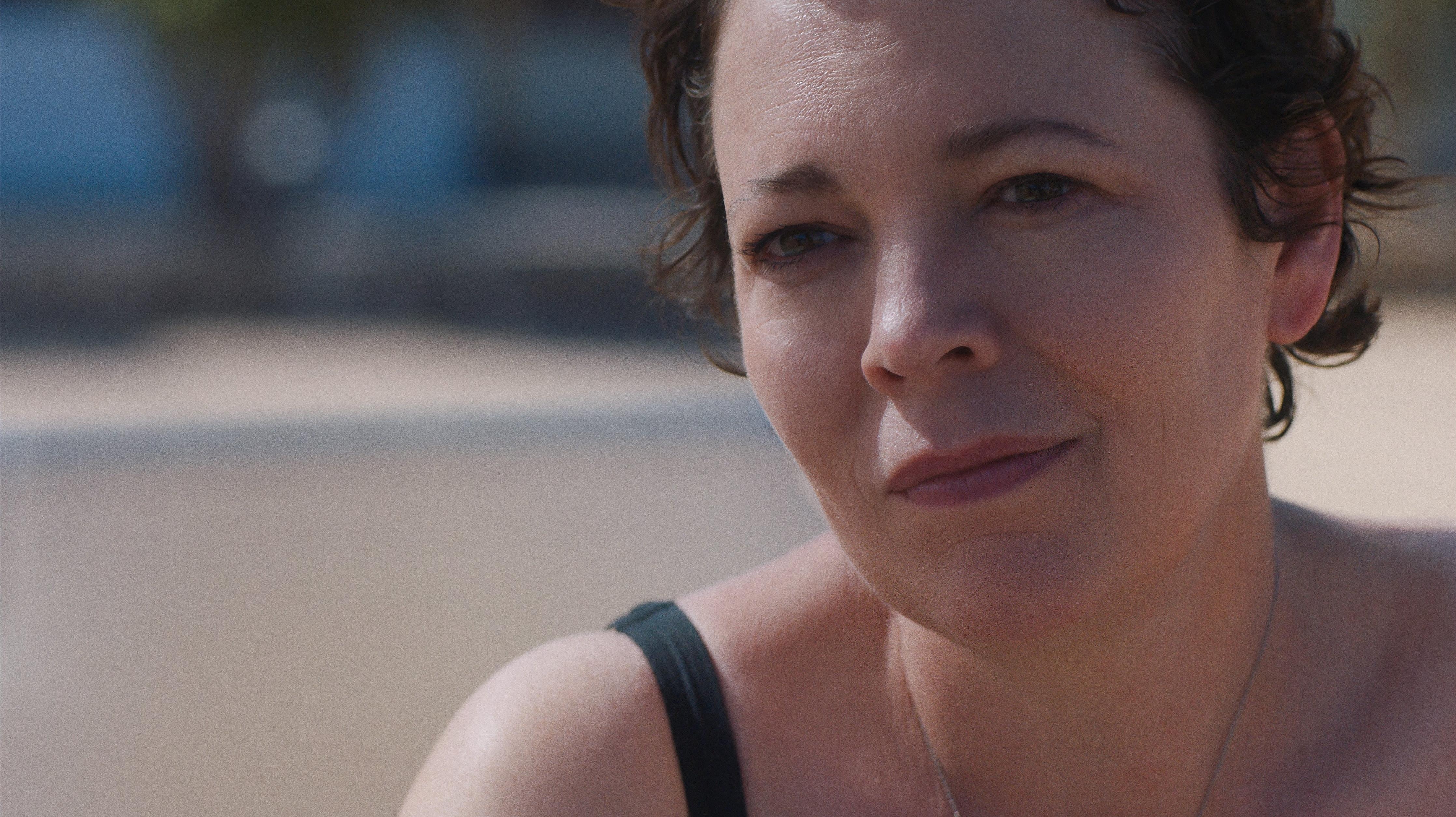The Lost Daughter is a haunting, astute drama about how much it sucks to be a mom
Maggie Gyllenhaal adapts Elena Ferrante’s novel into a taut psychological thriller

Early in The Lost Daughter, a 48-year-old college professor named Leda Caruso (Olivia Colman) is having a terse conversation at a Greek seaside resort with a bossy woman named Callie (Dagmara Domińczyk), who is heavily pregnant with her first child and celebrating her 42nd birthday. Earlier, Leda had ruffled some feathers by refusing to move down the beach to another chair, when Callie’s big, boisterous family invaded the spot where she was trying to relax. As a passive-aggressive peace offering, Callie pressures Leda into having a bite of her birthday cake. In return Leda—the mother of two children, both in their 20s—offers some not-so-encouraging words. She smiles thinly at this stranger whom she clearly dislikes and warns, “Children are… a crushing responsibility.”
The Lost Daughter is based on a 2006 novel by Elena Ferrante, the pseudonymous Italian author best known for the four-volume “Neapolitan Novels,” adapted into the HBO series My Brilliant Friend. Actor Maggie Gyllenhaal makes her feature filmmaking debut (as writer, director, and co-producer) with a movie that doesn’t shy away from the beguiling ambiguities of Ferrante’s fiction. This is the story of a brilliant academic who has spent much of her adult life pursuing the very reasonable desire to have some time alone with her thoughts—which is something that kids, needy lovers, demanding bosses, and obnoxious tourists make extremely difficult.
The plot is slight, but it has an effective hook. As Leda tries to find a little peace and quiet to read and write, she keeps getting distracted by the property manager (Ed Harris) hitting on her, and by Callie’s clan barging into seemingly every recreational activity to make her uncomfortable. Then she encounters Callie’s sister-in-law, Nina (Dakota Johnson), who is frustrated by the demands of her toddler daughter and regularly squabbling with her husband, Toni (Oliver Jackson-Cohen)—a man who, it is subtly suggested, might be involved in organized crime. Leda sees a kindred spirit in Nina and wants to help her out, but there’s one big obstacle: For reasons she can’t entirely explain, Leda has stolen Nina’s daughter’s favorite doll.
The Lost Daughter is structured a little bit like a dark comedy and a little bit like a mystery, frequently looking back at the life of Leda as a young mother (played by Jessie Buckley), leading up to a moment in her past that still looms across her memories like a chilling shadow. Gyllenhaal teases that moment out, hinting at what it might be but not revealing it until about two-thirds of the way through the picture. The rest of the time, the film is about the moment-to-moment reactions of Leda—in her 20s and her 40s—to a world full of irritants.
